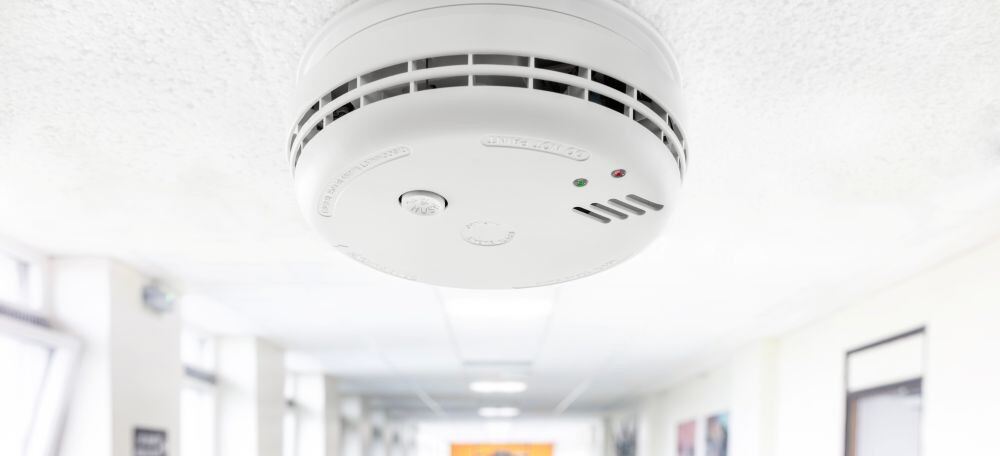
Fire Regulations and Legal Requirements for Schools in the UK
Fire safety is a crucial priority for schools across the UK, ensuring the safety of students, staff, and visitors. The UK has established specific legal frameworks and standards that schools must follow to minimize fire risks and enable quick, effective evacuations in case of an emergency. Complying with these regulations is not only a legal obligation but essential for safeguarding lives.
Legal Framework for Fire Safety in UK Schools
The primary legislation overseeing fire safety in UK schools is the Regulatory Reform (Fire Safety) Order 2005. This legislation applies to all non-domestic premises, including educational establishments. It places the responsibility for fire safety squarely on the ‘responsible person’—which, in the case of schools, is typically the governing body or the local authority.
Schools are required to take a proactive approach to identifying fire hazards, assessing risks, and implementing appropriate safety measures. Regular reviews and updates of fire safety protocols are essential to comply with legislation and best practices.
Key Fire Safety Requirements for UK Schools
1. Fire Risk Assessment:
Schools must conduct a thorough fire risk assessment, identifying potential hazards, evaluating risks, and implementing controls. This assessment must be reviewed regularly and after any significant change to the premises or organisation.
2. Fire Detection and Alarm Systems:
Effective fire detection systems, including smoke alarms and manual call points, must be installed and maintained. These systems should be regularly tested to ensure they function correctly.
Effective fire detection systems, including smoke alarms and manual call points, must be installed and maintained. These systems should be regularly tested to ensure they function correctly.
3. Emergency Exits and Escape Routes:
Schools are required to provide clear, unobstructed escape routes and well-marked emergency exits. Doors should open easily without keys or special tools, and routes must be kept free of obstacles at all times.
Schools are required to provide clear, unobstructed escape routes and well-marked emergency exits. Doors should open easily without keys or special tools, and routes must be kept free of obstacles at all times.
4. Fire Extinguishers and Equipment:
Suitable fire extinguishers should be strategically placed throughout the premises. Regular inspections and maintenance by qualified personnel are mandatory to ensure readiness.
Suitable fire extinguishers should be strategically placed throughout the premises. Regular inspections and maintenance by qualified personnel are mandatory to ensure readiness.
5. Regular Fire Drills and Staff Training:
Schools must conduct fire drills at least once per term to ensure staff and students are familiar with evacuation procedures. Training should also cover how to operate fire safety equipment.
Schools must conduct fire drills at least once per term to ensure staff and students are familiar with evacuation procedures. Training should also cover how to operate fire safety equipment.
6. Electrical Safety and Equipment Maintenance:
Electrical installations should be inspected regularly to prevent electrical fires. All equipment must meet safety standards, and faults should be addressed promptly.
Electrical installations should be inspected regularly to prevent electrical fires. All equipment must meet safety standards, and faults should be addressed promptly.
7. Maintenance and Testing of Fire Safety Systems:
All fire safety systems, including alarms, extinguishers, and emergency lighting, must be inspected, maintained, and tested in accordance with manufacturer guidance and legal requirements.
All fire safety systems, including alarms, extinguishers, and emergency lighting, must be inspected, maintained, and tested in accordance with manufacturer guidance and legal requirements.
Legal Responsibilities of Schools in the UK
School leadership and governing bodies are legally responsible for ensuring fire safety compliance. Failure to meet legal requirements can result in enforcement notices, fines, or even prosecution, especially if negligence leads to harm.
FAQs
Q1: Who is responsible for fire safety in UK schools?
A1: The governing body or local authority, acting as the ‘responsible person,’ is legally responsible for managing fire safety.
A1: The governing body or local authority, acting as the ‘responsible person,’ is legally responsible for managing fire safety.
Q2: How often should fire drills be conducted?
A2: Fire drills should be conducted at least once per term, but more frequent drills are recommended to ensure everyone is familiar with evacuation procedures.
A2: Fire drills should be conducted at least once per term, but more frequent drills are recommended to ensure everyone is familiar with evacuation procedures.
Q3: What does a fire risk assessment involve?
A3: It involves identifying hazards, evaluating risks, recording safety measures, and reviewing procedures regularly.
A3: It involves identifying hazards, evaluating risks, recording safety measures, and reviewing procedures regularly.
Q4: Are schools legally required to have fire alarms maintained?
A4: Yes, fire alarms should be tested weekly, with professional inspections conducted annually or as recommended by manufacturers.
A4: Yes, fire alarms should be tested weekly, with professional inspections conducted annually or as recommended by manufacturers.
Q5: What are the consequences of failing to comply with fire safety laws?
A5: Non-compliance can lead to enforcement notices, hefty fines, or prosecution. In emergencies, negligence can result in legal action if it leads to injury or death.
A5: Non-compliance can lead to enforcement notices, hefty fines, or prosecution. In emergencies, negligence can result in legal action if it leads to injury or death.
Conclusion
Fire safety in UK schools is a vital legal obligation that ensures the safety of everyone on site. By conducting risk assessments, maintaining safety equipment, performing regular
Category:
Fire Alarms

